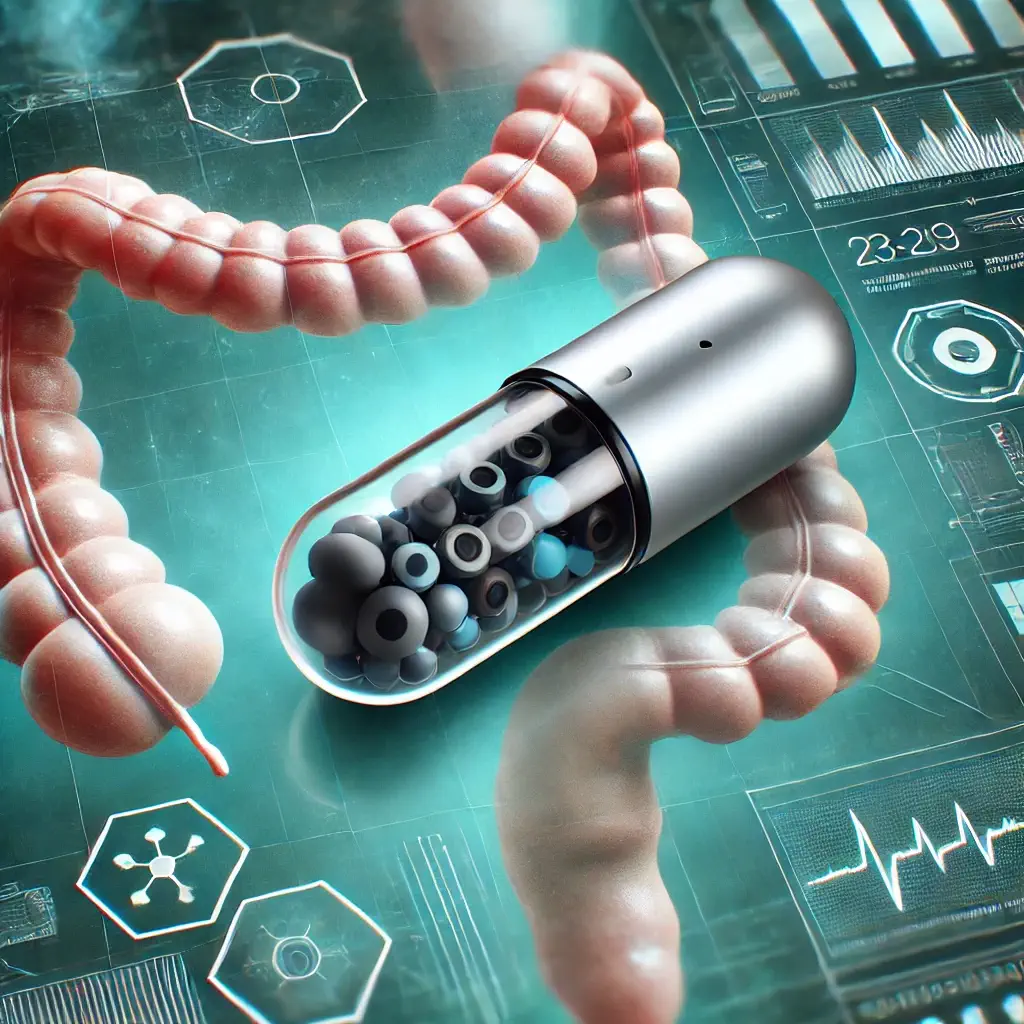RoboMed is revolutionizing gastrointestinal (GI) diagnostics with its innovative Robotic Capsule Endoscopy. This advanced technology provides a non-invasive, efficient, and comprehensive solution for GI examinations, marking a significant leap forward in medical diagnostics.
What is Robotic Capsule Endoscopy?
The Robotic Capsule Endoscopy by RoboMed is a cutting-edge diagnostic tool that enables a complete and non-invasive examination of the GI tract. Unlike traditional endoscopy, which requires a tube to be inserted into the body, this capsule is a small, swallowable device equipped with a high-definition camera and advanced sensors. As it navigates through the digestive system, it captures detailed images and transmits them wirelessly for thorough analysis.
5 Key Features and Benefits
- Non-Invasive Comfort: The capsule’s non-invasive nature eliminates the discomfort and risks associated with traditional endoscopy. No sedation or recovery time is needed, making the procedure simpler and safer for patients.
- High-Definition Imaging: Equipped with state-of-the-art imaging technology, the capsule provides high-definition images, allowing for the early detection of GI abnormalities such as tumors, ulcers, and inflammatory diseases.
- Real-Time Data Transmission: The capsule transmits data in real-time, enabling immediate analysis and intervention if necessary. This feature is crucial for diagnosing acute conditions promptly.
- Comprehensive GI Tract Coverage: The robotic capsule can traverse the entire GI tract, from the esophagus to the colon, ensuring no area is left unexamined. This comprehensive coverage is a significant improvement over conventional methods.
- Convenience and Ease: Patients can continue their daily activities during the procedure, as the capsule naturally moves through the digestive system. This convenience greatly enhances patient compliance and comfort.
Transformative Applications in Healthcare
RoboMed’s Robotic Capsule Endoscopy is particularly beneficial for:
- Routine Health Screenings: Regular screenings for GI conditions, especially in patients with a family history of GI diseases. Learn more about the importance of routine health screenings.
- Chronic Disease Management: Monitoring conditions such as Crohn’s disease, celiac disease, and ulcerative colitis to manage and adjust treatments effectively.
- Emergency Diagnostics: Rapid diagnosis of unexplained GI symptoms, such as bleeding, pain, or weight loss, which can lead to timely and appropriate interventions.
Future Prospects
The future of GI diagnostics looks promising with RoboMed’s Robotic Capsule Endoscopy. Ongoing research and development efforts are focused on integrating advanced AI and machine learning algorithms to enhance diagnostic accuracy and efficiency. Future versions of the capsule may also include therapeutic capabilities, such as targeted drug delivery and tissue sampling.
Conclusion
RoboMed’s Robotic Capsule Endoscopy sets a new standard in GI diagnostics, combining comfort, precision, and comprehensive coverage. This technology is not just a leap forward in medical diagnostics but a giant step towards a healthier future. For more information on advancements in GI diagnostics, visit this informative resource.
